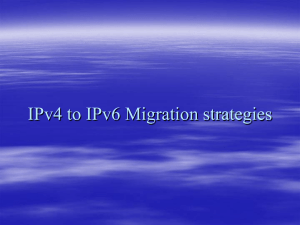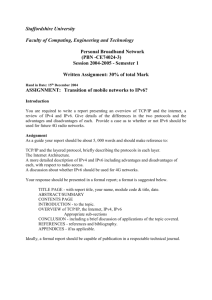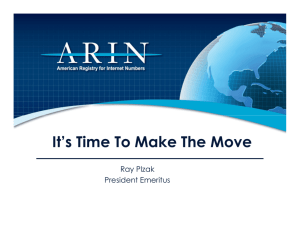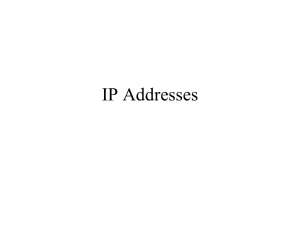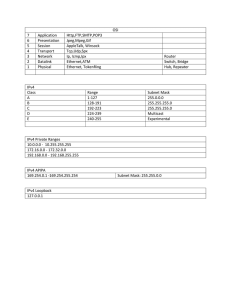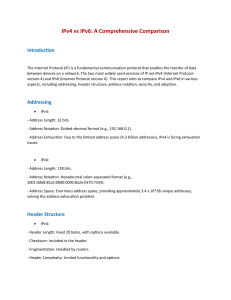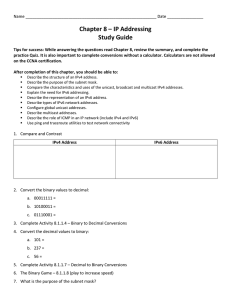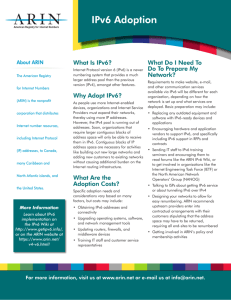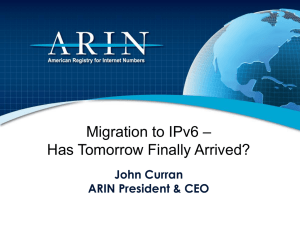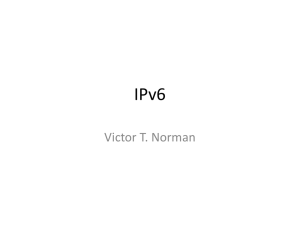IPv4 and IPv6
advertisement
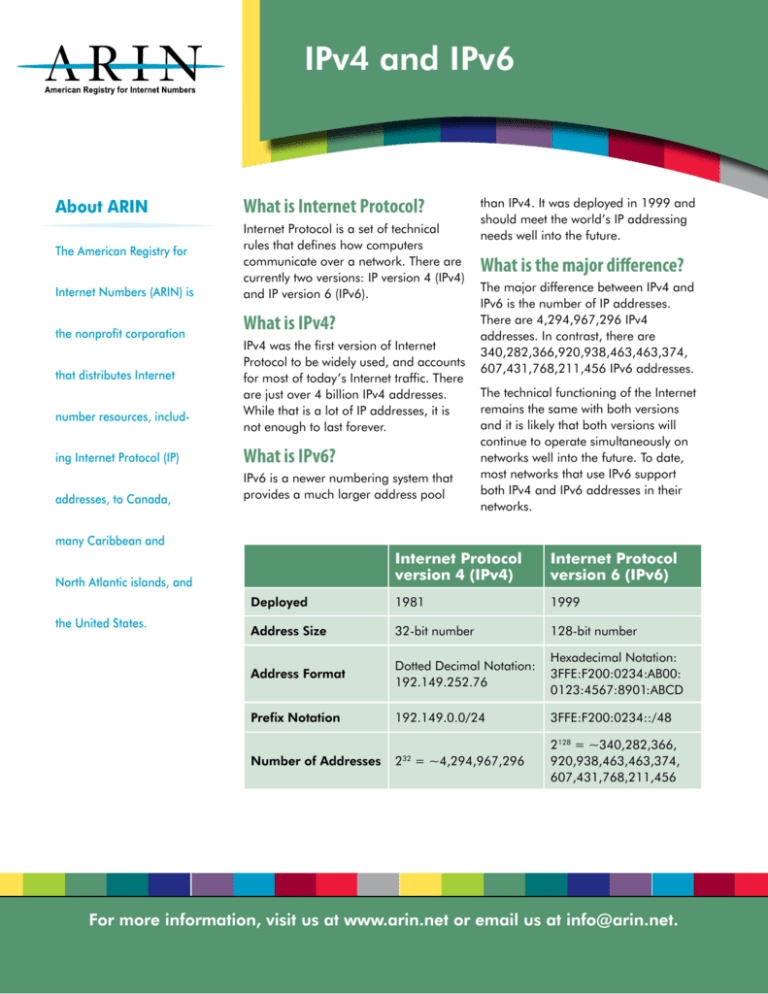
IPv4 and IPv6 About ARIN The American Registry for Internet Numbers (ARIN) is the nonprofit corporation that distributes Internet number resources, includ- What is Internet Protocol? Internet Protocol is a set of technical rules that defines how computers communicate over a network. There are currently two versions: IP version 4 (IPv4) and IP version 6 (IPv6). What is IPv4? IPv4 was the first version of Internet Protocol to be widely used, and accounts for most of today’s Internet traffic. There are just over 4 billion IPv4 addresses. While that is a lot of IP addresses, it is not enough to last forever. ing Internet Protocol (IP) What is IPv6? addresses, to Canada, IPv6 is a newer numbering system that provides a much larger address pool than IPv4. It was deployed in 1999 and should meet the world’s IP addressing needs well into the future. What is the major difference? The major difference between IPv4 and IPv6 is the number of IP addresses. There are 4,294,967,296 IPv4 addresses. In contrast, there are 340,282,366,920,938,463,463,374, 607,431,768,211,456 IPv6 addresses. The technical functioning of the Internet remains the same with both versions and it is likely that both versions will continue to operate simultaneously on networks well into the future. To date, most networks that use IPv6 support both IPv4 and IPv6 addresses in their networks. many Caribbean and Internet Protocol version 4 (IPv4) Internet Protocol version 6 (IPv6) Deployed 1981 1999 Address Size 32-bit number 128-bit number Address Format Dotted Decimal Notation: 192.149.252.76 Hexadecimal Notation: 3FFE:F200:0234:AB00: 0123:4567:8901:ABCD Prefix Notation 192.149.0.0/24 3FFE:F200:0234::/48 Number of Addresses 2 = ~4,294,967,296 2128 = ~340,282,366, 920,938,463,463,374, 607,431,768,211,456 North Atlantic islands, and the United States. 32 For more information, visit us at www.arin.net or email us at info@arin.net.

